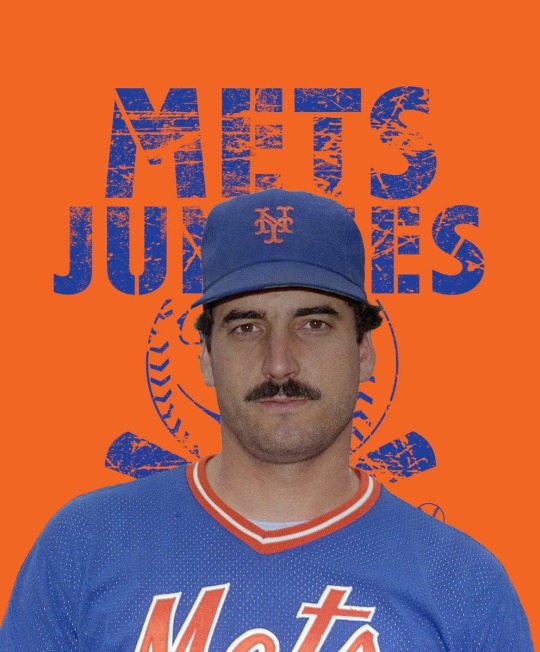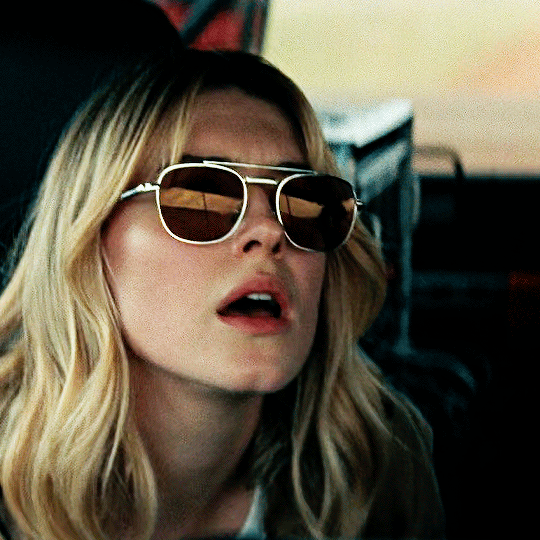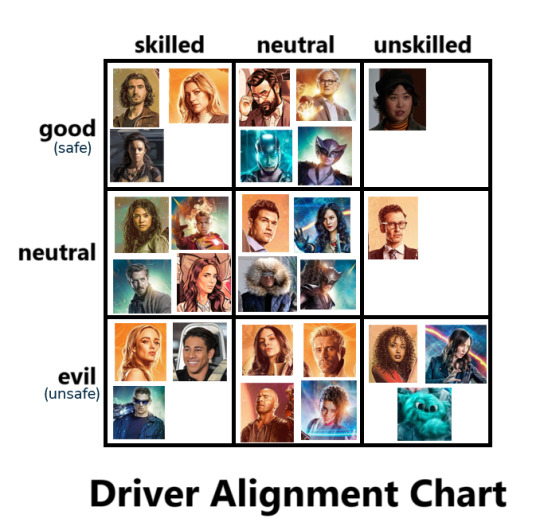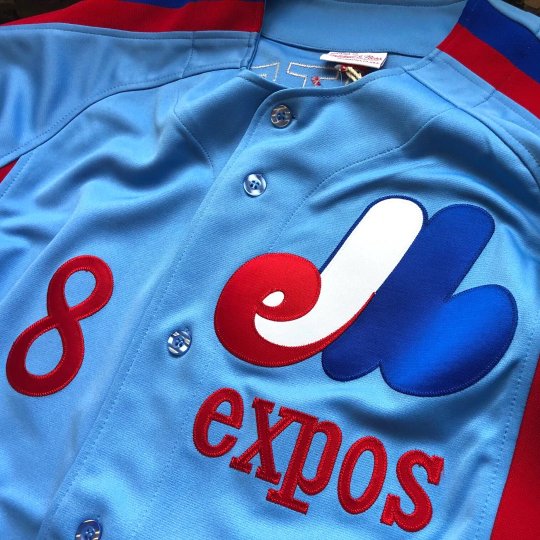#Gary Carter
Explore tagged Tumblr posts
Text

48 notes
·
View notes
Text

The San Diego Chicken shows off his dance moves next to Montreal Expos catcher Gary Carter before the 1979 Major League All-Star Game in Seattle!
2 notes
·
View notes
Text

4 notes
·
View notes
Text
Gary Carter

Another new 8x10 painting on canvas for my wall... for now. The canvas is painted metallic blue, orange, white, metallic black and silver.
2 notes
·
View notes
Photo

Glencadam Announces New Scotch Range Of Specially Curated Cask Finishes Scotland’s East Highland distillery, Glencadam, recently released a series of unique cask finishes to its portfolio, featuring five expressions that put a spin on their house style.Read the full article at Glencadam Announces New Scotch Range Of Specially Curated Cask Finishes https://thewhiskeywash.com/whiskey-styles/scotch-whiskey/glencadam-announces-new-scotch-range-of-specially-curated-cask-finishes/
0 notes
Text
#ThrowbackThursday Mets Edition: Keith Hernandez
Keith Hernandez: A Baseball Journey Filled with Triumphs, Challenges, and Unforgettable Moments Keith Hernandez, a name synonymous with excellence and precision, is a baseball icon who left an indelible mark on the sport. From his early days in the Minor Leagues to his memorable tenure with the New York Mets and subsequent trades, Hernandez’s career is a testament to skill, determination, and…

View On WordPress
#ThrowbackThursday#Cardinals#Cleveland Guardians#Cleveland Indians#Darryl Strawberry#Doc Gooden#Gary Carter#Guardians#Indians#Keith Hernandez#LGM#Mets#MLB#MLB Central#MLB Network#MLB Now#Mookie Wilson#New York Mets#Sandy Alderson#St. Louis Cardinals#Steve Cohen#Wally Backman
0 notes
Text





Some dark fantasy favourites 🎞️📽️🎬
1. Bram Stoker's Dracula (1992)
2. Sleepy Hollow (1999)
3. Edward Scissorhands (1990)
4. Dark Shadows (2012)
5. Sweeney Todd: The Demon Barber of Fleet Street (2007)
#goth#goth aesthetic#gothic#grungy aesthetic#dark aesthetic#alternative#post punk#emo#emo aesthetic#grunge#punk#punk aesthetic#alternative aesthetic#aesthetic#bram stokers dracula#sleepy hollow#edward scissorhands#dark shadows#sweeney todd#demon barber of fleet street#gothic movies#movies#film#gothic film#bite me#johnny depp#winona ryder#eva green#helena bonham carter#gary oldman
573 notes
·
View notes
Text


DAISY & GLEN + GLASSES TWISTERS (2024) | HIT MAN (2024)
#twisters#kate carter#daisy edgar jones#katecarteredit#daisyedgarjonesedit#filmgifs#filmedit#movieedit#moviegifs#twistersedit#twistersgif#twisters 2024#kaizschetwistersgifs#hit man#hit man 2024#gary johnson#ron#gary johnson aka ron#glen powell#glenpowelledit#hitmanedit#hitmangif#kaizschehitmangifs
186 notes
·
View notes
Text




Glen Powell for InStyle by Erik Carter.
#glen powell#instyle#instyle magazine#erik carter#it boy#golden boy#fashion#men's fashion#high fashion#editorial#black & white#bw#black and white#b&w#bwphotography#black and white photography#jacket#white jacket#tyler owens#twisters#hit man#gary johnson
146 notes
·
View notes
Text

Put a Legend behind the wheel and this is what you'll get.
Change my mind.
#legends of tomorrow#i made this template ages ago and finally decided to have some fun with it#welp now i gotta tag everyone#sara lance#ava sharpe#zari tarazi#zari tomaz#ray palmer#nora darhk#leonard snart#mick rory#astra logue#spooner cruz#amaya jiwe#nate heywood#behrad tarazi#martin stein#jefferson jackson#kendra saunders#gwyn davies#mona wu#gary green#rip hunter#gideon#wally west#leo snart#carter hall#john constantine#charlie clotho#beebo
144 notes
·
View notes
Text

Earth-2 is born. Courtesy of Doomsday Clock # 12.
#gary frank#doomsday clock#jsa#justice society of america#power girl#green lantern#huntress#helena wayne#robin#batman#superman#doctor fate#wildcat#wonder woman#the flash#jay garrick#alan scott#carter hall#hawkman
27 notes
·
View notes
Text

58 notes
·
View notes
Text




Anti-Propaganda is not allowed. Please only give reasons to vote for something and not give reasons to vote against something.
Propaganda
Seita and Setsuko Yokokawa: genuinely one of my favorite movies ever bc i rlly enjoy how their relationship is portrayed, they love and care for each other so very much and seita does everything he can despite their circumstances to give setsuko a happy life
#siblings tournament#carter kane#sadie kane#the kane chronicles#seita yokokawa#setsuko yokokawa#grave of the fireflies#gary#tucker#are you afraid of the dark?#stan marsh#shelly marsh#south park
13 notes
·
View notes
Text

1 note
·
View note
Text



oh like... you know...🫳?
Panthers Championship Parade | 6.30.24 (x)
#evan rodrigues#carter verhaeghe#florida panthers#i was giving a play by play to my friend on my parade experience#and she just said “based on twt and your vn i can assume you attended a wet tshirt contest at a pride parade”#that summarised that pretty well#the more you see clips the more it looks like pride#a whole ass pride month logo posting THAT and about to kick the bucket gary wanted to ban pride tape bffr#girl look in the mirror first#roddy has a severe case of being in love with the homies#2 homosexuals walk the streets of las olas in the rain their love is so beautiful <3#roddy has so much puppylove to give#RELEASE THE GOPRO FOOTAGE OF THIS PLEASE PLEASD LLEASEEEEELLEASDEEEEEEE
29 notes
·
View notes
Text












Harry Potter and the order of the phoenix (2007)
#harry potter and the order of the phoenix#harry potter#hermione granger#ron weasley#sirius black#bellatrix lestrange#dolores umbridge#minerva mcgonagall#ginny weasley#luna lovegood#remus lupin#neville longbottom#david yates#daniel radcliffe#emma watson#rupert grint#maggie smith#gary oldman#helena bonham carter#emma thompson#sybill trelawney#imelda staunton#evanna lynch#bonnie wright
15 notes
·
View notes